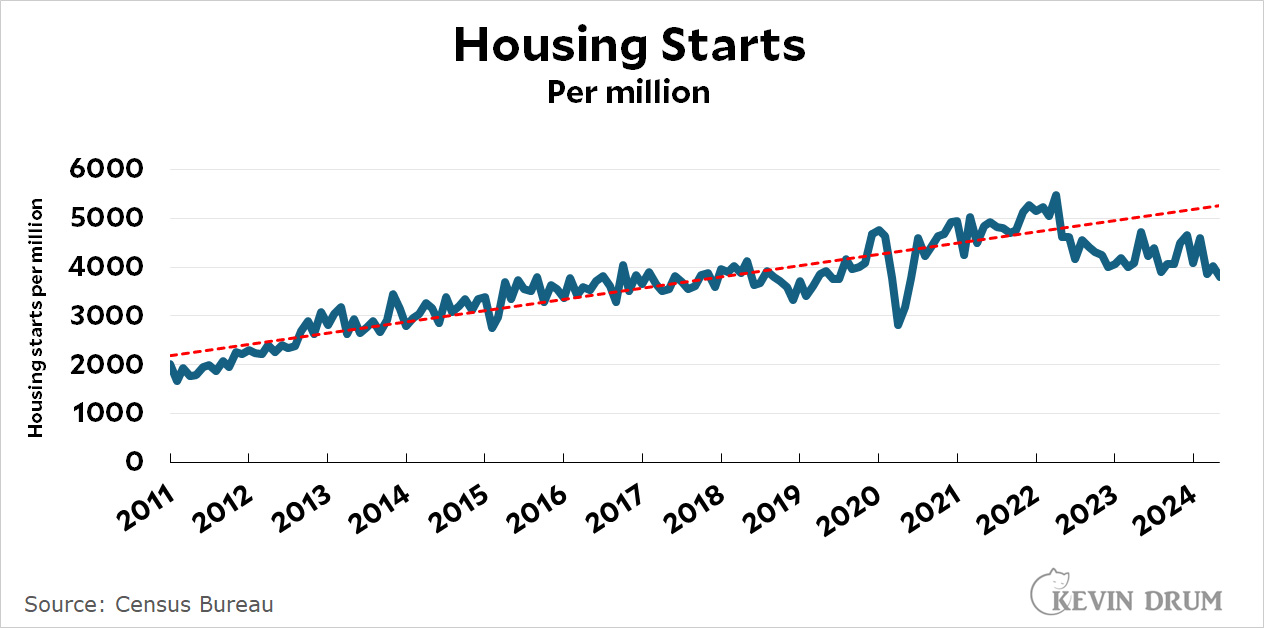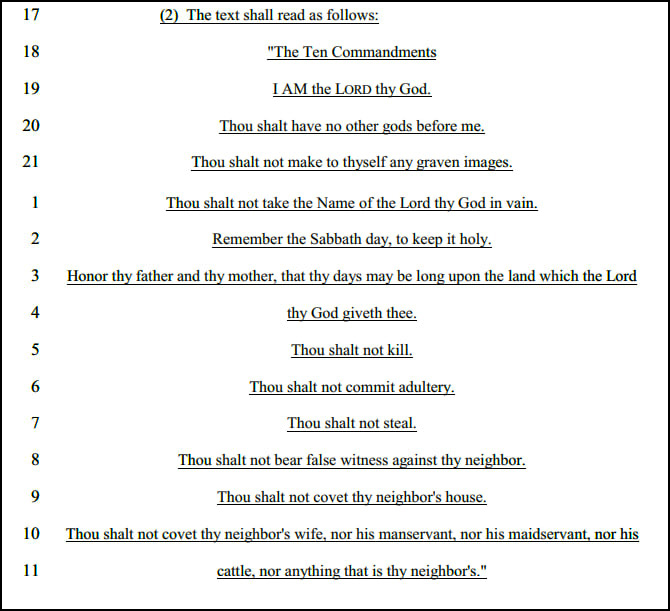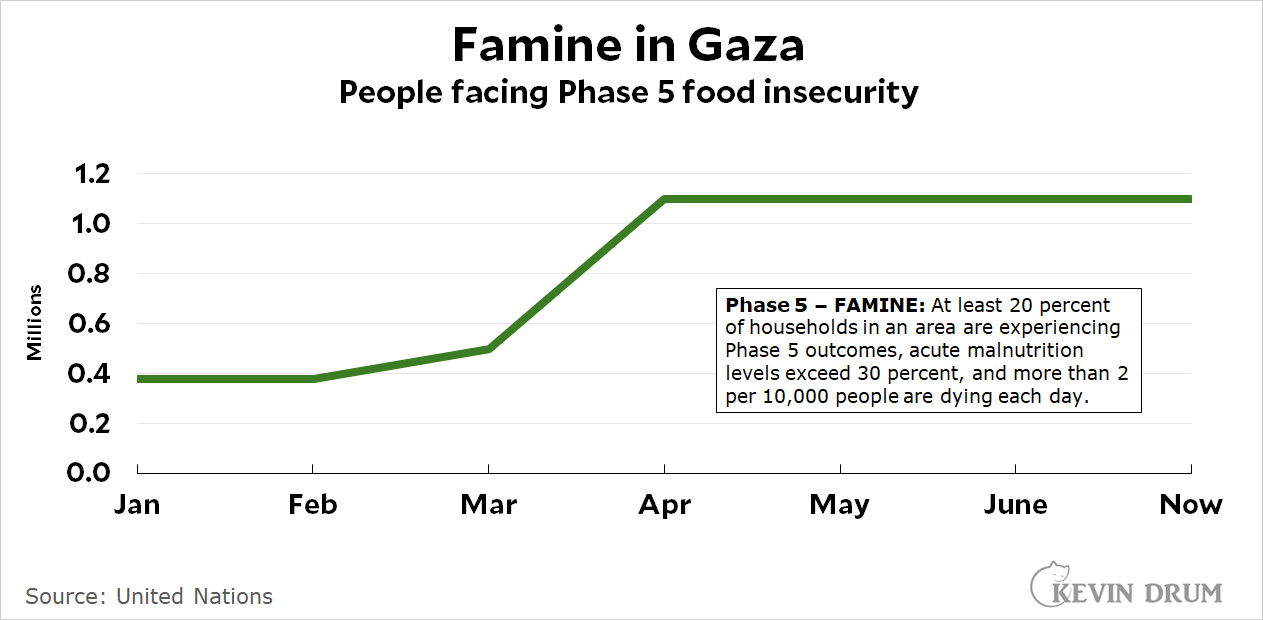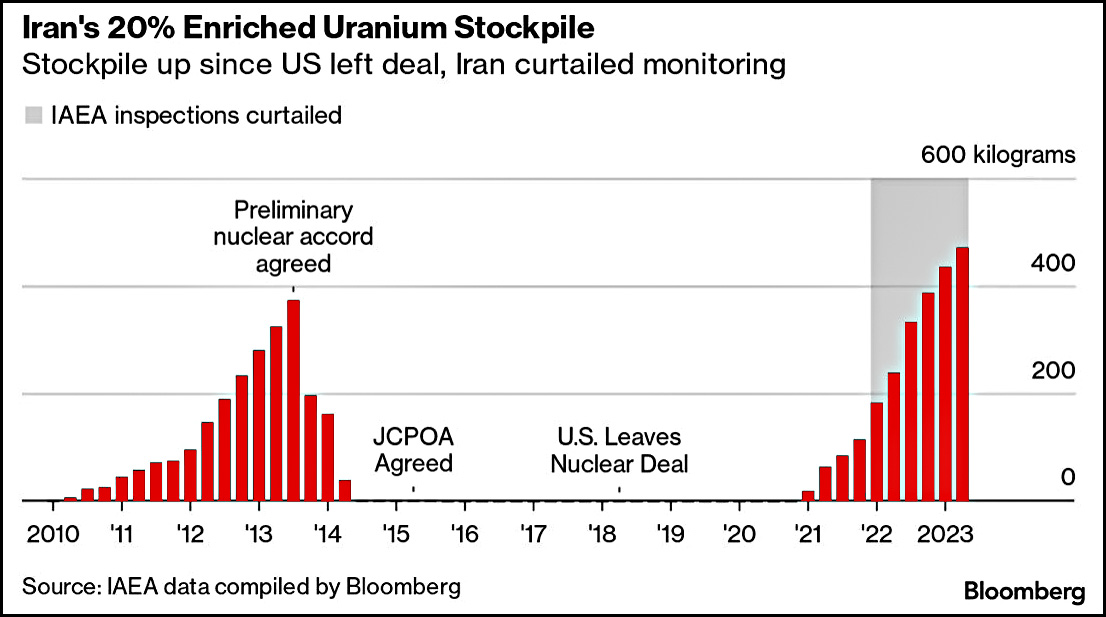Alex Tabarrok points me today to a Washington Times story about rural broadband:
Residents in rural America are eager to access high-speed internet under a $42.5 billion federal modernization program, but not a single home or business has been connected to new broadband networks nearly three years after President Biden signed the funding into law, and no project will break ground until sometime next year.
....Federal Communications Commissioner Brendan Carr said the program’s goal of providing high-speed internet to most underserved areas will not be fully realized until 2030, nine years after its enactment.... “There hasn’t been a single shovel’s worth of dirt that has even been turned towards connecting people,” Mr. Carr said.
The Times portrays this as a problem caused by liberal demands in the law: union workers, climate change considerations, etc. But that's not really the story.
The BEAD program was authorized in late 2021 as part of the bipartisan Infrastructure Act. But the feds only provide the money. All of the actual buildout is done by the states, so the first step was to use an FCC map to determine which areas were most underserved—something that obviously had nothing to do with liberal wish lists. Following that, state allocations were set in June 2023, and every state had submitted an application by the start of 2024. That was only six months ago.
 Some states have been faster than others. Some allow cities to apply for funds, others keep it all at the state level. All of them have to come up with 25% matching funds. Nevertheless, in the past six months 15 states have been fully approved and every one of the others are very close. This too has nothing to do with liberal demands. Six months is just not a very long time when it comes to planning the disbursement of billion-dollar grants.
Some states have been faster than others. Some allow cities to apply for funds, others keep it all at the state level. All of them have to come up with 25% matching funds. Nevertheless, in the past six months 15 states have been fully approved and every one of the others are very close. This too has nothing to do with liberal demands. Six months is just not a very long time when it comes to planning the disbursement of billion-dollar grants.
Bottom line: Disbursing $42 billion takes a while, especially when it's being funneled through all 50 states. You have to allocate the money fairly. You have to get plans from each state about how they're going to use the money. And finally the states have to actually begin digging holes and laying fiber. Along the way there will be the usual disagreements about what's acceptable and what's not, some along partisan lines and some just garden variety complaints from broadband providers. Overall, though, there's been nothing unusual about BEAD and it's rolling out pretty much on schedule.





